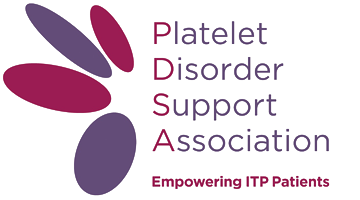Homeopathy, also known as homeopathic medicine, is an alternative medical system developed in Germany more than 200 years ago. According to the National Institutes of Health National Center for Complementary and Integrative Health (NCCIH), the approach is based on two unconventional theories: “like cures like”—the notion that a disease can be cured by a substance that produces similar symptoms in healthy people; and “law of minimum dose”—the idea that the lower the dose of medication, the greater the effect. In fact, many homeopathic remedies are so diluted no molecules of the original substance remain.
Homeopathy is widely used in Europe and India, and is becoming increasingly popular in the United States. Federal statistics estimated five million American adults and one million children used homeopathic remedies in 2011.2 However, the practice of homeopathy remains controversial. Definitive scientific evidence of the efficacy of the holistic practice is lacking, and some concerns about its safety have arisen.
How is homeopathic medicine practiced?
Practitioners who specialize in homeopathy address their patients’ health complaints by conducting lengthy interviews to describe not only their symptoms and experience of their illness, but other factors including childhood history, exposure to traumatic events, fears, food aversions or cravings, recurrent dreams, stress levels and response to weather conditions. The goal is to form a deep holistic understanding of each patient’s inner mental and physical state in order to make a correct diagnosis and determine the best specific remedy for that patient.
Because homeopathic remedies are often prescribed based on a highly individualized diagnostic process, they may differ markedly even among patients with identical symptoms. Remedies are derived from a variety of sources, including plants, animal products, minerals and even synthetic chemicals. Some medications may contain highly unusual ingredients, such as snake venom, poison ivy, stinging nettle or crushed whole bees. Once selected, source materials are diluted on the theory that the lowest possible dose assures the most effective treatment.
While homeopathic remedies are also available over the counter for minor conditions including colds and headaches, it is important to note the federal Food and Drug Administration (FDA) does not evaluate these products for effectiveness or safety, and very few homeopathic remedies have undergone thorough scientific study.
Does homeopathy work?
Although theories abound about whether, or precisely how, homeopathic techniques might lead to improvements in health, there is as yet no scientifically proven answer to these questions. The confusion is in part related to the variations in disease characteristics, patient personalities, remedy combinations and dosages. Such flexibility can be beneficial for some people with ITP since the autoimmune disease can vary significantly between people,1 but can make it difficult to standardize the treatment required for the type of clinical trials used in science-based research.
Despite these supportive conclusions, homeopathic medicine has generated a number of negative reviews by various experts. The NCCIH points out in a recent review that many key concepts associated with homeopathic medicine appear to be inconsistent with the basic laws of physics and chemistry. Additionally, the fact that homeopathic remedies are usually so dilute that the amount of active substance present in them seems imperceptible, leads many experts to question how these treatments can be effective. These reservations have been supported by the results of large systematic government reviews in Australia3 and the United Kingdom,4 which concluded that homeopathic remedies perform no better than inactive placebos.
In 2017, the FDA proposed a new policy that will more carefully scrutinize homeopathic products, especially those sold to treat infants and children, those containing ingredients with significant safety concerns, and those sold for serious conditions such as opioid addiction, heart disease and cancer.
Are There Risks Associated With Homeopathic Treatment?
Perhaps the greatest risk associated with homeopathy is the potential harm that may come from using the complementary medical system to replace conventional treatments. Although homeopathy may be helpful in dealing with some health challenges, there are instances where time-consuming treatments involving diluted remedies may not be best, such as conditions that require surgery or immediate relief of severe symptoms, or ailments that can be addressed by conventional approaches, including simple changes in nutrition or lifestyle, or by stress reduction.
The safety of homeopathic remedies may also be open to question. The NCCIH warns that “some products sold or labeled as homeopathic may not be highly diluted; they can contain substantial amounts of active ingredients. Like any drug or dietary supplement that contains chemical ingredients, these homeopathic products may cause side effects or drug interactions.”
In light of the ongoing controversies regarding homeopathic medicine, NCCIH advises against using homeopathic treatment to replace or postpone conventional Western medical care. The agency points out that treatments are individualized and can vary by practitioner, making it important to work with someone who is both an appropriately licensed professional clinician and also very knowledgeable and experienced in the use of the homeopathic medical system. NCCIH advises informing all health care providers about any complementary and integrative health approaches you use in order to ensure that care is coordinated and safe.
Resources
1. Provan D et al. “International consensus report on the investigation and management of primary immune thrombocytopenia” Blood, 14 January 2010, Vol. 115, No. 2, pp. 168-186. http://bloodjournal.hematologylibrary.org/cgi/content/full/115/2/1686
2. Clarke TC, Black LI, Stussman BJ, Barnes PM, Nahin RL. Trends in the use of complementary health approaches among adults: United States, 2002-2012 (@$)KB PDF). National health statistics reports; no 79. Hyattsville, MD: National Center for Health Statistics. National Health Interview Survey, 2012
3. Effectiveness of Homeopathy for Clinical Conditions: Evaluation of the Evidence. Overview Report. Prepared for the NHMRC Homeopathy Working Committee, October 2013. Available at http://www.nhmrc.gov.au/_files_nhmrc/file/your_health/complementary_medicines/nhmrc_homeopathy_overview_report_october_2013_140407.pdf, accessed on April 04, 2015.
4. House of Commons Science and Technology Committee. Evidence check 2: Homeopathy. 2009. Available at: http://www.publications.parliament.uk/pa/cm200910/cmselect/cmsctech/45/45.pdf, accessed on April 04, 2015.

